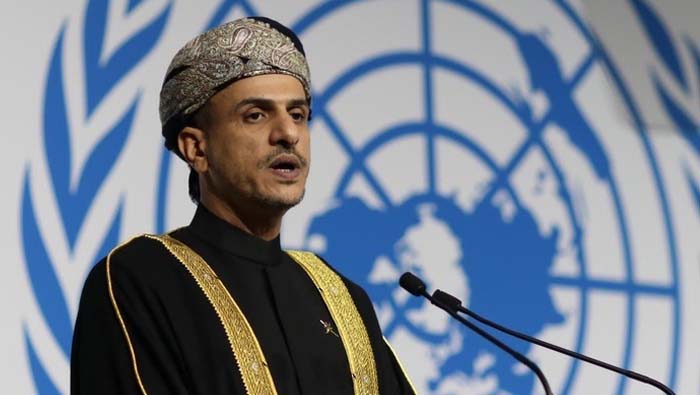
Lisbon: Delegated by His Majesty Sultan Haitham bin Tarik, the Sultanate of Oman, represented by the Environment Authority (EA), took part yesterday in the 2022 UN Ocean Conference, held in Lisbon, Portugal.
In Oman’s statement, Dr. Abdullah Ali Al Amri, Chairman of the Environment Authority asserted Oman’s commitment to protecting the environment and ensuring the safety of its habitats. He also reiterated Oman’s support to all international efforts aimed at achieving environmental stability and balance in the seas, oceans and other environments.
Al Amri said that Oman focuses on the sustainability of the environment and natural resources based on the Basic Law of the State which mandates the protection of the environment and combat pollution.
This was implemented through a set of legislations, such as laws on natural reserves, protection of the environment, pollution control and water resources, among others. These laws aim to achieve the goals of Oman Vision 2040.
Recent studies showed the stable condition of Oman’s seas, temperature, acidity, oxygen levels, the flourishing of chlorophyll and safe concentrations of heavy elements and micro-plastics, Al Amri added.
He also pointed out that based on Oman’s stance in support of global peace and stability, and its strategic location overlooking the Strait of Hormuz, the Sea of Oman and the Arabian Sea, it spares no effort to ensure the safety of these water corridors and the commercial shipping fleets, as well as providing quality services through its seven commercial ports.
Al Amri said that to protect marine resources, Oman joined several international conventions aimed at protecting and ensuring the safety of seas and water resources.
Oman also established 12 marine reserves and marine conservation areas. Yesterday (Tuesday) saw the addition of the 13th marine reserve promulgated by Royal decree No. (54/2022) on establishing the National Natural Park Reserve in the Governorate of Musandam.
Al Amri added that Oman implemented projects to cultivate natural and artificial coral reefs, plant many mangrove forests, adopt an emergency plan to combat oil pollution and ban the use of single-use plastic bags, as well as establishing 25 fishing harbours to organise artisanal fishing seasons, tools and methods. It also launched projects on fish farming through the adoption of modern technologies.